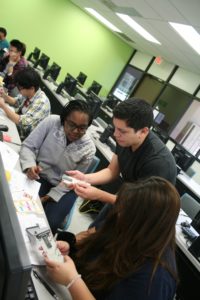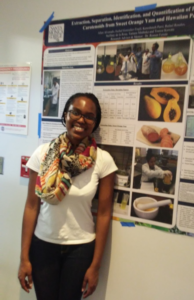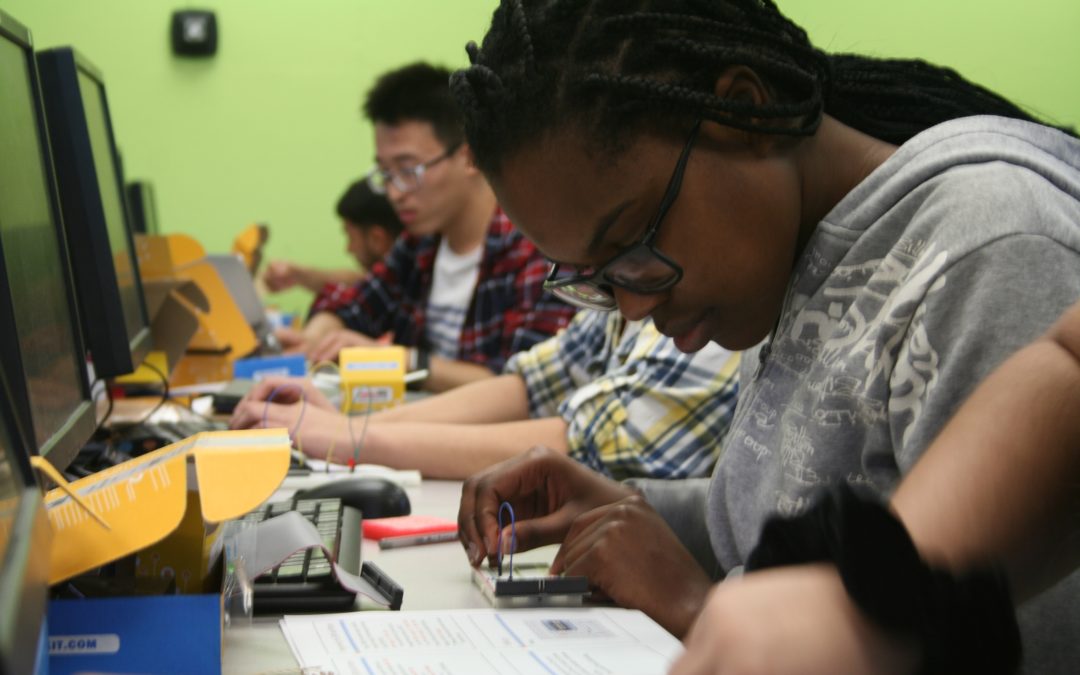Tamara Mmbuka, a student at Santa Monica College, was selected for a Base 11 academic-year internship at UC Irvine. She and other community college students from across Southern California visited UCI one Saturday a month throughout the school year. They tried out engineering tools like SolidWorks (3D design software) and Raspberry Pi (a credit card-size computer). While there, they also received support for applying to transfer to a four-year university. She recently spoke with Base 11 about what she gained from the experience, why she thinks others should apply, and her plans for the future.
Q. What inspired you to pursue STEM?
I went to high school in Kenya, and my first interaction with STEM was there, although at the all-girls school, they didn’t focus much on STEM. However, I loved watching National Geographic in my free time. And one day on the show they were talking about the Lotus Effect and how it could be used in Materials Engineering, and I was totally fascinated. That was the moment I knew.
 Q. How has the experience in the internship benefitted you?
Q. How has the experience in the internship benefitted you?
The Base 11 internship has been very informative and eye opening, especially because it was my first hands-on engineering internship. I also love the fact that they teach us the avenues we have for transferring. For some sessions they brought an admissions rep who told us what they’re looking for in applicants, and gave us tips for what to write in our college applications.
Q.What has the mentorship been like in the program?
The program brings in current UCI students to work with us on projects as mentors, but the cool thing is that they’re transfer students like I will be. They tell us about what it’s like to transfer and what university life is like. Sometimes I feel like I’m the only transfer student going into engineering. So being in this space where people are from a community college and transferred to engineering at UCI, is really inspiring.
Q.What’s the most significant thing you’ve learned from the internship?
My biggest takeaway from the program has to be self-advocacy. When I entered the program, I felt like they might not take me. But going through the program and meeting the different types of people who are leading the program taught me that I did this. They told me, you worked hard for this and do deserve the opportunities that you receive. Sure you have overcome all of these things, and everyone has taken different avenues, but you put yourself out there and made yourself a better applicant for it. That is life changing to me.
Q. What would you tell a student who was considering applying for the Base 11 internship program?
The first thing that I always tell students when I talk to them about applying for the Base 11 internship is that it doesn’t matter whether you think you’re going to get it or not. Just apply and let them decide. Why are you telling yourself no? Put yourself out there.
I also tell them how great it’s been for me. I’m not an aerospace major — but it’s an engineering internship, and if you’re an engineering student or even someone who is in engineering, it’s a great thing to do. It’s challenging, yes, but it’s a great thing to do.
I also talk about how we get tours to labs — It’s not just sitting in lecture halls, we walk around and see all this million-dollar equipment, and get to practice with the equipment and talk to people who work in the labs.
Q. What is the capstone project you’re working on?
We’re all doing projects that use facial recognition. I’m doing a journal.
Q. What does facial recognition have to do with aerospace?
One of the most interesting intersections of facial recognition and aerospace is drones. When looked at a project to build a drone to fly and pick up an object and then fly to another spot and put it down. Facial recognition helps learn to fly to the right location. And, it puts a lot of different engineering topics together — coding, design, programming.
 Q. What are your plans for the future, both in terms of college and career?
Q. What are your plans for the future, both in terms of college and career?
I want to study chemical engineering and I’ve definitely thought about getting a Ph.D. Career-wise, I’m interested in the intersection between academia and government in terms of STEM funding.
Q. Anything else you’d like to share?
A big thank you for the opportunity to meet all these different people. Because as community college students, we may never think about the fact that we can get academic internships. It’s great to know that there are programs like this out there and people who support community college students with these opportunities.
To learn more about Base 11’s academic-year internship program, and to apply, click here.

